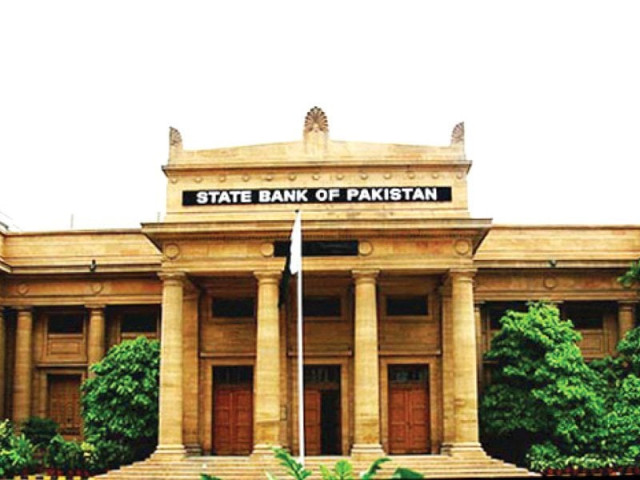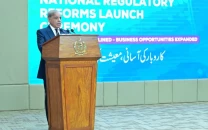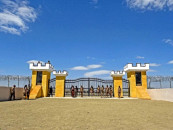SC-constituted committee proposes offshore tax amnesty scheme
This could be a once-in-a-lifetime opportunity for wealthy Pakistanis

This could be a once-in-a-lifetime opportunity for wealthy Pakistanis
This could be a once-in-a-lifetime opportunity for wealthy Pakistanis, as according to the proposal, those who would not avail the scheme – despite having foreign assets of over $100,000, would be deemed to have committed an offence under the Anti-Money Laundering Act 2010.
The three-member committee has, however, suggested that there should be no immunity from the prosecution under the Anti-Terrorism Act 1997 and the Anti-Money Laundering Act of 2010, according to the documents seen by The Express Tribune.
Govt puts CNICs at forefront of tax collection effort
The scheme has been proposed for a period of three months to nine months, and the higher tax rate will be applicable on those who avail the offer at the last leg of the scheme.
It has proposed tax rates ranging from 2% to over 10%, offering the lowest rates for liquid assets that are declared and transferred to Pakistan.
It has further suggested that the tax rates may gradually be increased for assets disclosed and invested in special foreign currency-denominated instruments, and bonds with a specific maturity period of up to ten years.
The highest tax rates have been proposed on assets that will be declared under the scheme, but are not repatriated to Pakistan.
The minimum declared value of an asset should not be below the cost of acquisition of the asset, according to the committee’s recommendations.
The scheme has the backing of the Supreme Court of Pakistan, which had set up the three-member committee headed by State Bank of Pakistan Governor Tariq Bajwa and comprising Federal Board of Revenue Chairman Tariq Pasha and Finance Secretary Arif Ahmed Khan.
All Pakistani citizens would be eligible to avail the scheme in respect of their foreign assets and incomes except foreign assets created through corruption by misusing the authority of public office and through criminal activities such as terrorist financing and narcotics.
The committee has recommended excluding public office holders or politically exposed persons from the scope of the amnesty scheme.
The committee has also recommended that the scheme should also be offered to non-resident Pakistanis.
Under the Income Tax Ordinance 2001, any person who stays abroad for more than six months in a year is a non-resident Pakistani for tax purposes. The sons of former prime minister Nawaz Sharif are non-resident Pakistanis.
The committee has proposed that those who have created assets through corruption and criminal activities must be dealt under multilateral agreements on the exchange of information along with stringent tax laws.
“The committee was unanimous in the view that globally the noose is tightening on tax evaders [and] in this scenario a one-time relaxation through the voluntary disclosure scheme may be a success.”
The committee noted that the arguments for the voluntary disclosure scheme outweigh the arguments against the scheme.
Pakistan has long been facing the challenge of bringing back assets that its citizens have kept abroad by exploiting legal lacunas.
“The proposed amnesty scheme is not perfect, as it excluded the domestically-held hidden assets,” said Ashfaq Tola – an eminent tax expert.
He said that until a solution to pumping black money in the real estate sector is found, people would keep their assets hidden.
Immunity
The committee has proposed immunity for those who avail the scheme only to the extent of the value of foreign income and assets declared under the scheme and the tax paid on it.
Those persons cannot be tried under the National Accountability Ordinance 1999, Foreign Exchange Regulations Act 1947, Income Tax Ordinance 2001, Prohibition of Benami Transactions Act 2017, Federal Investigation Agency Act 1974 and Companies Act 2017.
However, there will be no immunity from proceedings under the Anti-Money Laundering Act 2010, Narcotics Substances Act 1997 and Anti-Terrorism Act 1997. There will also be no immunity available to foreign assets for which proceedings in any court of law are pending.
The information of those who would avail the scheme will be kept confidential, according to the proposal.
The committee has also recommended making stringent the existing legal framework for holding and transferring of foreign exchange abroad, terming the present regime ‘too liberal’.
It has proposed to stop the deposits of foreign exchange that is purchased from the open market into the Foreign Currency Accounts maintained in Pakistan.
From tax year 2013 to 2017: Except for salaried class, number of tax return filers shrinks
It has also proposed stopping the misuse of Section 111(4)(a) of the Income Tax Ordinance, which is currently used to whiten illegally-obtained money from Pakistan by declaring the funds to be foreign remittances.
The committee has suggested capping the question-free tax-free flow of foreign remittances to a reasonable level.
Tola, however, argued that any attempt to limit foreign remittances would be tantamount to shooting the tyre of a racecar just short of the finish line.
He said $20 billion foreign remittances were providing a breathing space to the government.
The committee’s findings suggested that the relevant government agencies were unable to trace foreign assets of Pakistanis due to lack of specific information.
The committee has also recommended that this interim arrangement of coordination between key government agencies should be given permanent cover with a mandate to hold quarterly meetings.


















COMMENTS
Comments are moderated and generally will be posted if they are on-topic and not abusive.
For more information, please see our Comments FAQ